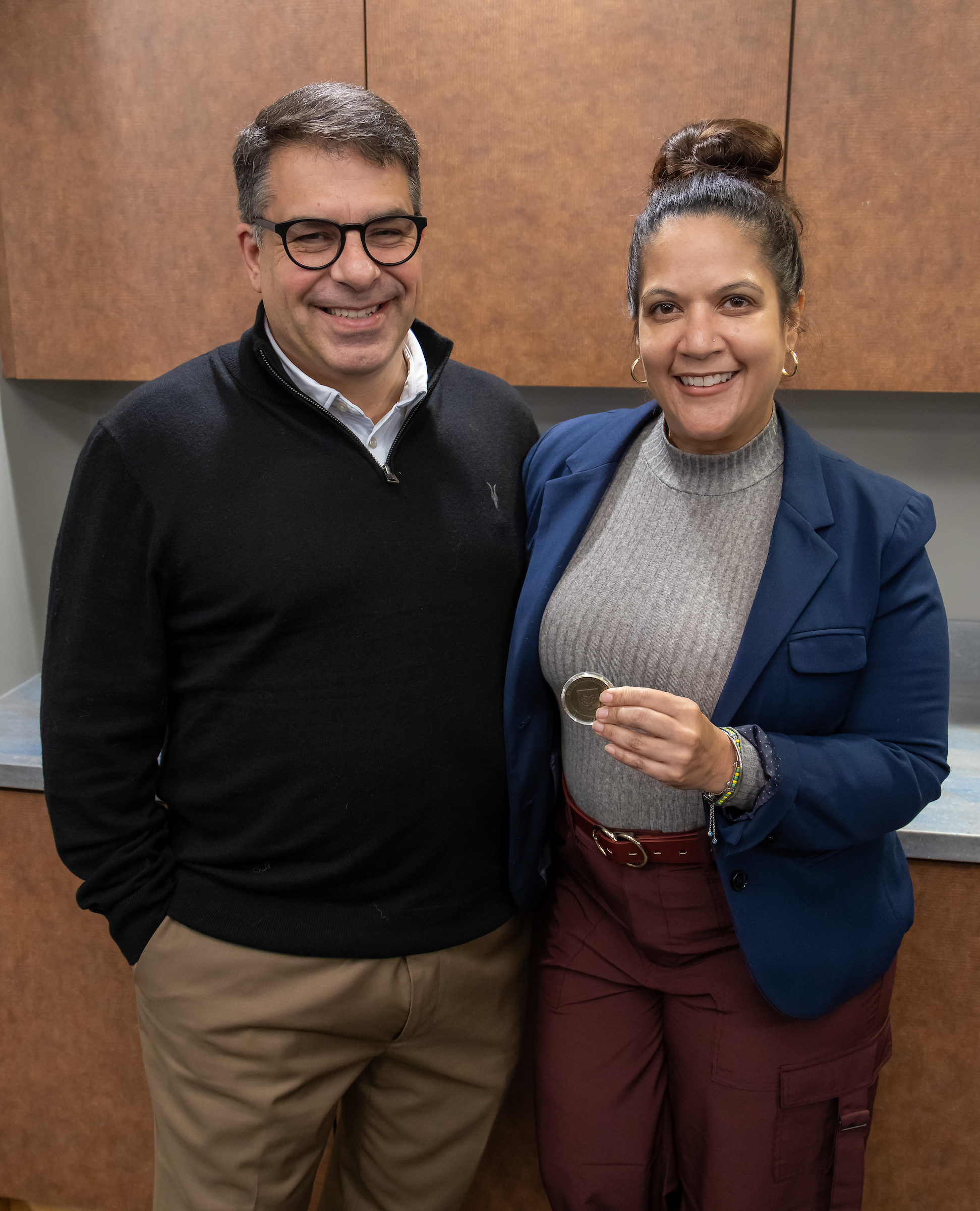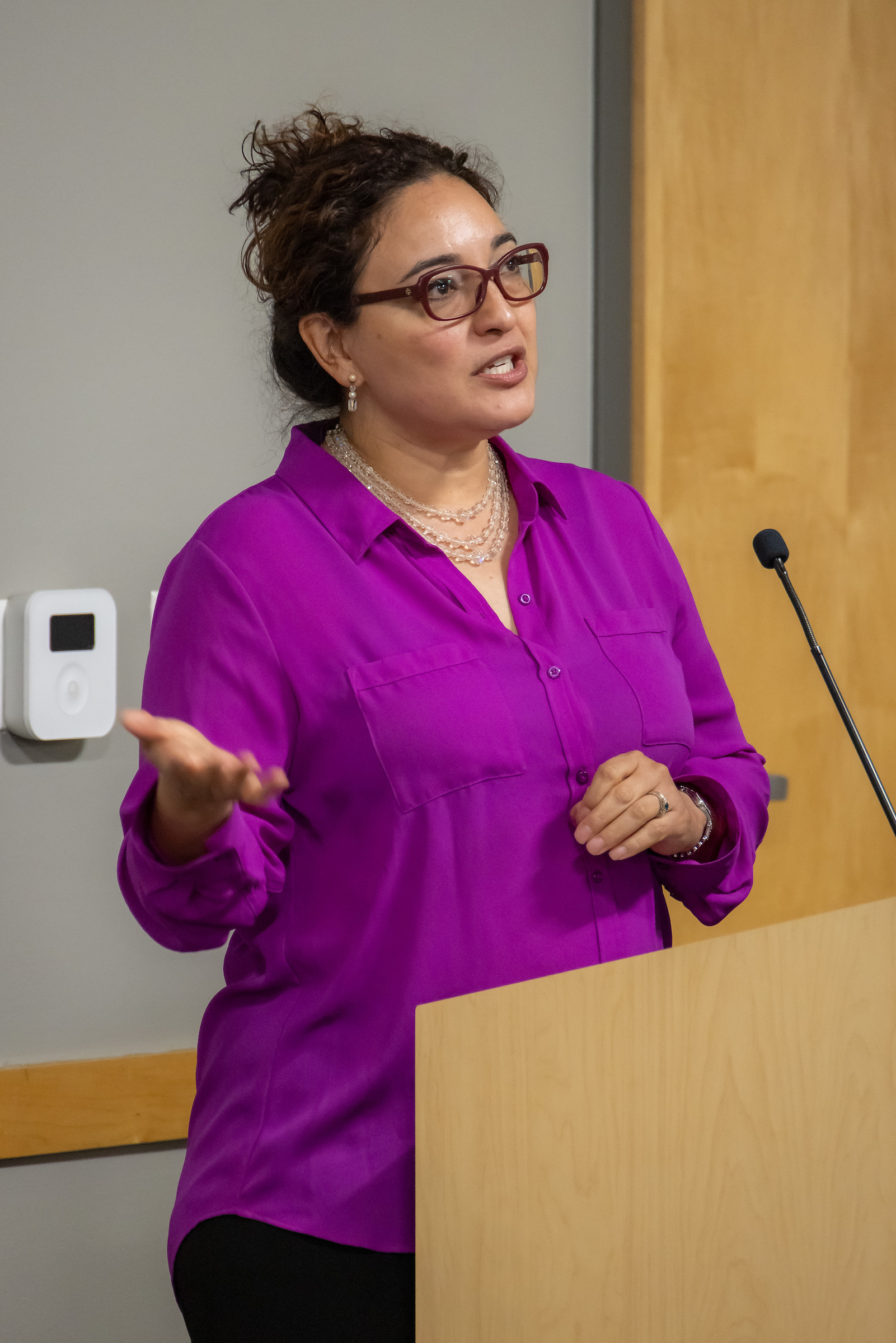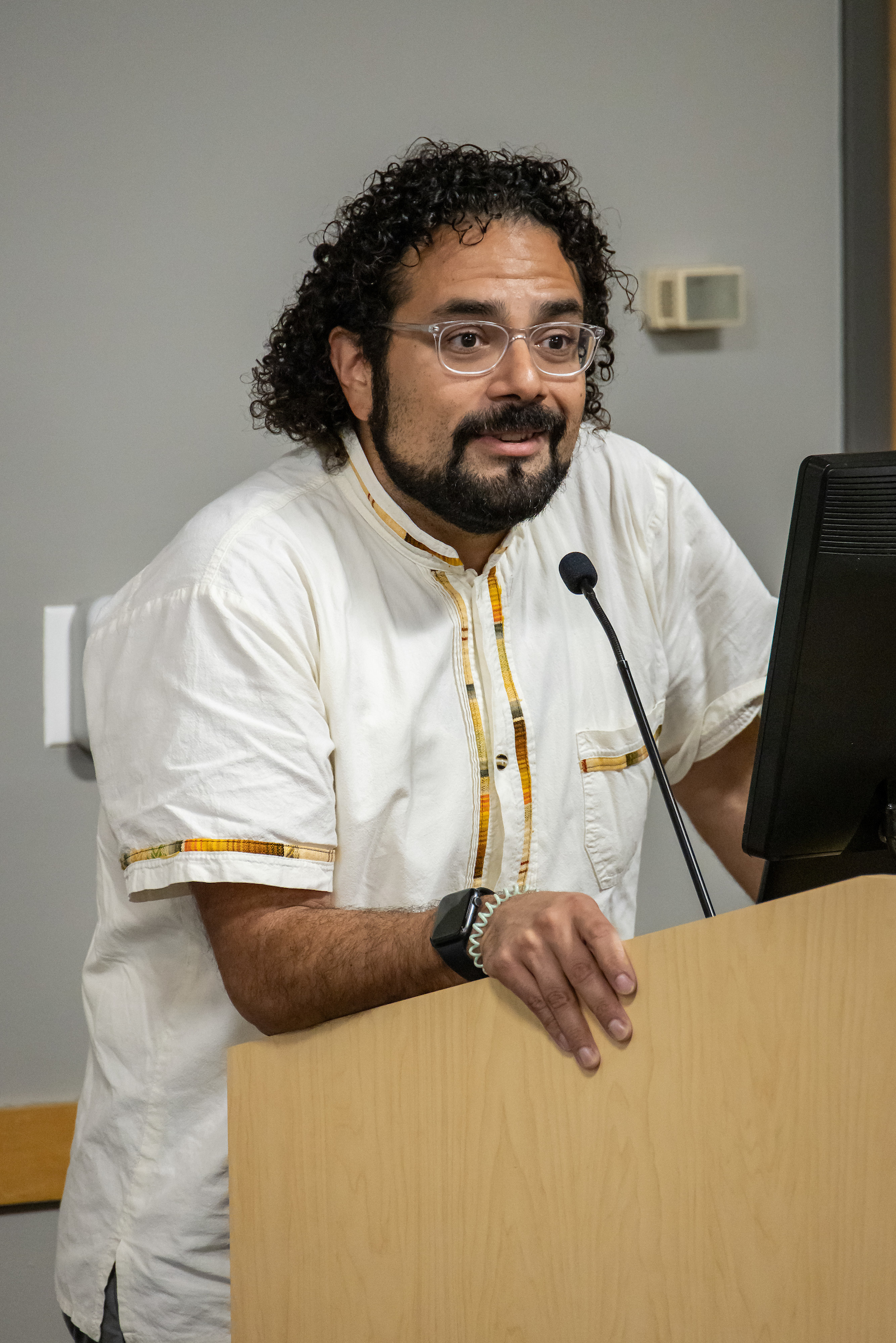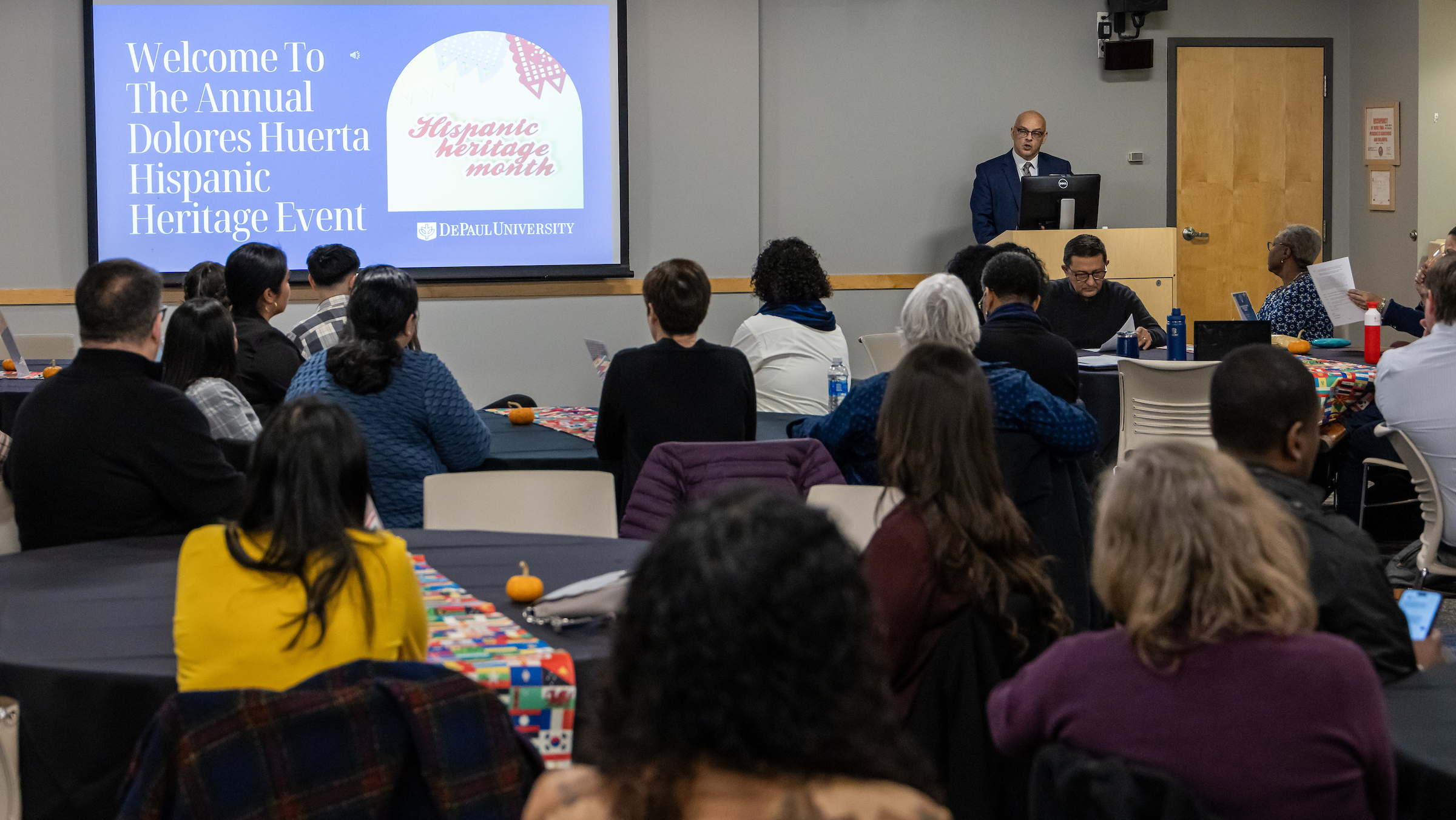
Robert Manuel (L), president of DePaul, presents Jacqueline Lazú, associate professor and associate dean of research and graduate studies in the College of Liberal Arts and Social Sciences, DePaul’s Shared Coin during the Dolores Huerta Hispanic Heritage Event. (Photo by Jeff Carrion / DePaul University)

Lilia Fernández, professor of history at the University of Illinois Chicago, presents her keynote address during the Dolores Huerta Hispanic Heritage Event. (Photo by Jeff Carrion / DePaul University)

Rubén Álvarez Silva, associate director for Just DePaul in the Division of Mission and Ministry, makes closing remarks during the Dolores Huerta Hispanic Heritage Event. (Photo by Jeff Carrion / DePaul University)

José Perales, interim vice president of Institutional Diversity and Equity, makes opening remarks at the Dolores Huerta Hispanic Heritage Event. The annual event brings together members of the DePaul community to celebrate the life and living legacy of Dolores Huerta as an activist for social justice within the Latinx community. (Photo by Jeff Carrion / DePaul University)
This year, the annual Dolores Huerta Heritage event invited the university community to reimagine how we honor Latinx and Hispanic history and culture. More than 50 faculty, staff and students celebrated the life and living legacy of Dolores Huerta as an activist for social justice within the Latinx community. DePaul’s Office of Diversity, Equity and Inclusion welcomed historian Lilia Fernandez as this year’s keynote speaker.
President Rob Manuel helped to open the event by presenting Jaqueline Lazú with
The Shared Coin for her work elevating the history of the Young Lords. Lazú, a Society of St. Vincent de Paul Professor, has helped bring prominence to the history of the activist organization,
culminating in an event on campus this fall.
“Jaqui’s intellectually invested in this, and her soul is invested into this,” Manuel said, praising Lazú for helping DePaul arrive at a moment when “we could finally celebrate the connection that we have” with the Young Lords.
In turn, Lazú welcomed Fernandez and cited her impact on the field of Latinx history in Chicago and beyond. “As a historian working in the interdisciplinary field of cultural studies, I was excited to see how she investigated the historical foundations and the wider systems of power associated with this impactful movement,” Lazú said.
Fernandez, a professor of history at the University of Illinois Chicago, researches the intersection of urban history, labor and working-class politics, and economic inequality. Her first book,
Brown in the Windy City: Mexicans and Puerto Ricans in Postwar Chicago, focused on the migration and settlement of these two populations in the city’s central neighborhoods and the communities they formed.
She presented on how the media depicts Latinx immigrants and people indigenous to the Americas, as well as the rich and often excluded history of Latinx people in the United States.
“U.S. history is much more deeply interwoven with its neighbors to the south than we are often willing to admit,” Fernandez said. “The erasure of Latinos in U.S. history is also about constructing a rather exclusionary narrative about who built the nation, created its wealth, and contributed to its development.” More about her work and writing
can be found here.
DePaul is preparing to become a
Hispanic-Serving Institution—a distinction that brings both resources and responsibility. Valerie Johnson, associate provost for diversity, equity and inclusion, asked Fernandez how DePaul can prepare to serve an increasingly diverse student population. Fernandez noted that DePaul’s Vincentian tradition places us in a strong position to view diversity as an asset, instead of a challenge.
“As an academic … my primary obligation is to the students,” Fernandez said. “Getting to know who they are, what their needs are, what their backgrounds are, where they're coming from, I think is really of utmost importance. That is what helps to build those cultural competencies.”
Kristin Claes Mathews is the director of media relations in University Communications.